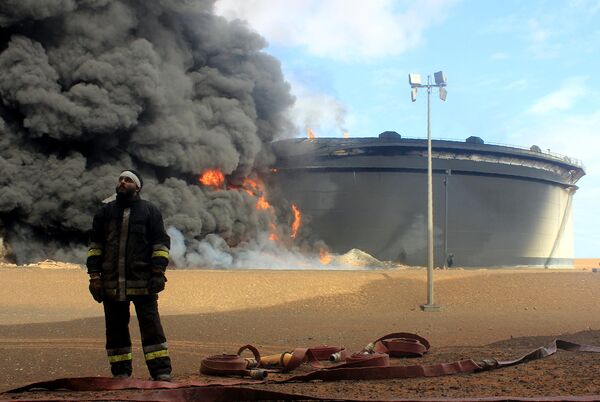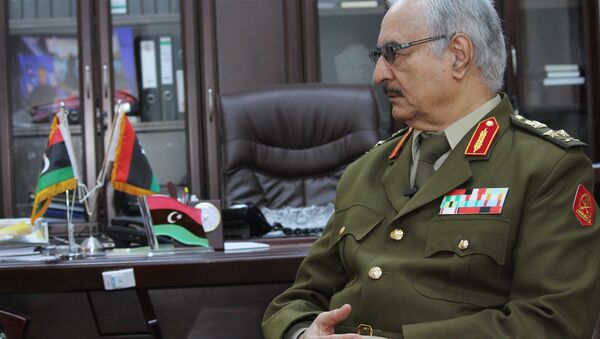The two men held one-on-one talks in Abu Dhabi on Tuesday, May 2, but the meeting had been brokered by outside Arab powers, including Egypt and the UAE. Sources close to Haftar have suggested that the meeting was cordial and positive.
Outside powers, including Egypt and Russia, have been calling for a political solution to Libya's fratricidal conflict for months. Forging a lasting reconciliation between Haftar and Sarraj has long been recognized as the fulcrum to achieving unity in post-Gaddafi Libya.
#Libya Interim Govt Foreign Ministry: Haftar-Serraj meeting a serious step to acheive political stability & securityhttps://t.co/M69TLXSDbQ pic.twitter.com/uwSEBIGwi3
— Alwasat (@alwasatengnews) May 3, 2017
Both men have faced calls for them to come together and cooperate on the redrafting of the UN-mediated agreement of 2015 that spawned the Government of National Accord (GNA) in Tripoli, which is led by Sarraj. Haftar has repudiated the mandate of the GNA, as it gave neither him or his colleagues in the opposition parliament any role in Libya's political future. The Parliament led by Haftar is based in the the city of Tobruk in the country's east.
Back in February, Sarraj claimed that Haftar refused to meet him for discussions in Cairo as part of an Egyptian-backed effort to amend the GNA agreement of 2015.
For many Libyans in the east of the country, particularly the second city of Benghazi, Haftar is seen as the more credible leader over the GNA's Serraj. In large part, this is because as a retired army general, Haftar launched his own war against Islamist militant groups that had started to take over swaths of the east of the country following Gaddafi's fall. Many in the eastern Libya felt that the GNA has been ineffective and indifferent to their trials.
Additionally, on 11 September 2016, Haftar and the LNA launched a military operation called "Sudden Lightning," which wrestled control of Libya's four major oil terminals that had been under the control of groups loyal to warlord, Ibrahim Jadhran. After taking the crescents, Haftar handed them over to the Libyan National Oil Company to resume exports.
Although the reinvigoration of Libya's oil industry has been sluggish, the move cemented Haftar's credibility as a tough and decisive leader in the eyes of ordinary Libyans concentrated in the east.

Because of the aforementioned, the GNA has struggled to expand its power beyond Tripoli and into the country's West. At Tuesday's meeting, Haftar and Serraj were expected to discuss issues related to the Libyan army and a possible power-sharing agreement. Libyan television broadcaster 218 reported that both men held talks "in private" after posing together for a photo.
218 Channel: Haftar and Serraj agreed on most points of contention during meeting in Abu Dhabi. #Libyahttps://t.co/gDHRT5OLHx pic.twitter.com/Tdkq3FSK2I
— Alwasat (@alwasatengnews) May 2, 2017
The Libyan Express has also reported that during the talks it was decided that Haftar will be nominated as Libyan president in March 2018. The agreement between the two also reportedly calls for an end to foreign interference in Libyan security affairs.
The latest meetings between the two men could be a significant step toward ending the stalemate that has crippled Libya's ability to unify following the 2011 revolution. But Haftar and Sarraj are not the only players on the political scene. If any deal between the two is to stand the test of time, it will need support from the various armed groups that have, up until now, supported their preferred camp in either Tobruk or Tripoli.




